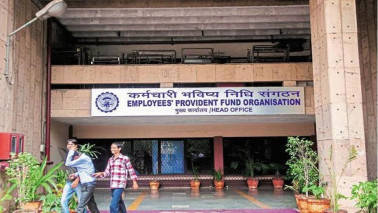While some experts feel that this is an 'excellent move' and will affect the Delhi-NCR market the most, builders are of the view that it will lead to a further liquidity crisis.
Premium office spaces starting at Rs 12 lakh only, assured returns and easy payment plans - advertisements like these - which often lured investors of commercial and retail properties and even residential assets, may now be a thing of the past with the Cabinet clearing the Banning of Unregulated Deposit Schemes Bill this week.
The Bill seeks to crack down on assured returns schemes and treat them as ‘ponzi’ schemes. It even bars developers who promise fixed returns until possession. It now requires all deposit seekers to register with the designated authority provided under the proposed law.
Modus operandi till now
If a developer wanted to raise money for building a proposed project, he offered an assured returns scheme to the investors. The interest rate at which it had to pay monthly returns to investors usually ranged between 10%-12% p.a. of the property’s purchase price. This was much lower in contrast to the 16%-18% p.a. rate of interest the developer had to shell out if he opted for a loan from a commercial bank.
“Typically, the developer signed an Agreement for Assured Returns with the buyer wherein the parties agree that the buyer will make an upfront down payment of 90%-95% of the property’s purchase price at the time of booking/within a few days after such a booking.
"After receiving this payment, the developer commenced paying assured returns of around 10%-12% p.a. (or the agreed percentage) of the property’s purchase price paid on a monthly basis. These fixed-percentage payments continued till such time the developer leased out the property to a lessee and payment of monthly rent commenced. The remaining 5%-10% of the property’s purchase price was paid by the buyer upon receiving possession of the property,” said Sunil Tyagi of Zeus Law.
Investors were lured into such schemes for properties that were yet to be constructed or for that matter land that was yet to be acquired and in most cases developers stopped paying returns after a few months citing reasons such as financial constraints or a slow realty market. Many even abandoned projects mid-way and there were even complaints cheques that bounced.
Impact of the bill on the realty market
While some experts feel that this is an 'excellent move' and will impact the Delhi-NCR market the most, builders are of the view that it will lead to a further liquidity crisis. They also argue that it will impact only 5 per cent of the real estate market as it was only cash-strapped B or C grade developers who fell into the trap of offering assured returns schemes to raise quick capital.
Some realty experts said that the government should also take the next step forward to regulate buy back schemes in which developers buy back an apartment or a commercial unit from the buyer/investor at after a pre-agreed period at a pre-determined price in addition to assured returns scheme.
Ramesh Nair, CEO and Country Head, JLL India, feels that the real estate sector is going through liquidity concerns and such schemes definitely helped the developer as it was a cheaper source of funding. Cost of funding for developers ranges between 9 to 25 per cent and a lot of developers borrow at 15% to 16%. Second, the government needs to tighten the registration process with the relevant authority but not ban the overall scheme.
“There are bad apples in every industry. You create a checklist, consider their financial, marketing, construction track record than ban the scheme,” he said.
He said that the Delhi-NCR market is most exposed to such schemes and it will aggravate liquidity concerns. “NBFC loans don’t come cheap. The exposure of NBFC/ housing finance companies to real estate financing is 2.2 lakh crore and this will further go up,” he adds.
“Taking deposits by offering assured returns is not really selling real estate, it is selling some other scheme. This is a ponzi scheme. You are taking debt from the public as a public deposit and that was not regulated. This practice was common mostly among Grade b and Grade c developers who were otherwise not getting access to capital from formal channels. Builders who were cash strapped and wanted to finish the project through this route, fell into this trap. These schemes were also mostly pushed by brokers as it was easy sell for them. Having said that, it will not impact even 5 per cent of the market,” said Pankaj Bajaj, MD of Eldeco and the new president of Credai-NCR.
Anckur Srivastavva of GenReal Advisers is of the view that this move by the government will impact the small offices, shops segment the most as 90 per cent of such commercial spaces were sold basis the assured returns scheme. This is likely to hit small investors hard. Having said that, the government should also try and regulate the buyback schemes offered by developers.
Gagan Randev, national director, Capital Markets and investment services at Colliers International India, points out that in most cases these were deals entered into by legitimate developers because sales were slow. Until now it fulfilled the needs of the investor who was offered certainty of returns and for a developer, it brought in the necessary cash flows but in most cases there were delays in handing over the product, no certainty of the units getting leased and payment getting stopped and investors being left in a lurch.
Does it offer recourse to investors who put in money in assured returns schemes?
As a futuristic measure, this is an excellent move that ensures that there is a framework by which the investor cannot be duped by the developer. “All this was being done in the past because there was no regulatory framework for it. But it was also not illegal as it was not regulated. This is surely an excellent move that should have happened long back,” said Sumant Batra, an insolvency lawyer of international repute.
The move will protect future investors but as far as those who have put in their money in such schemes in the past, it needs to be seen how this measure will help.
“Whatever has been done in the past is illegal too but nobody can be penalized for it because liability of whatever is illegal is obviously prospective. So it probably may not offer any protection to people who have already invested in these schemes. Only thing is these people will still have to file for recoveries as they have been doing in the past, go to courts, insolvency courts as they have been recognized as financial creditors by NCLT,” he said.
As far RERA is concerned, this may now become a checklist for RERA. Also, with more people asking for refund because such schemes will henceforth be considered illegal, there may be a bit of chaos. Also, developers will not be able to continue paying assured returns going forward as this will become illegal prospectively, he added.


